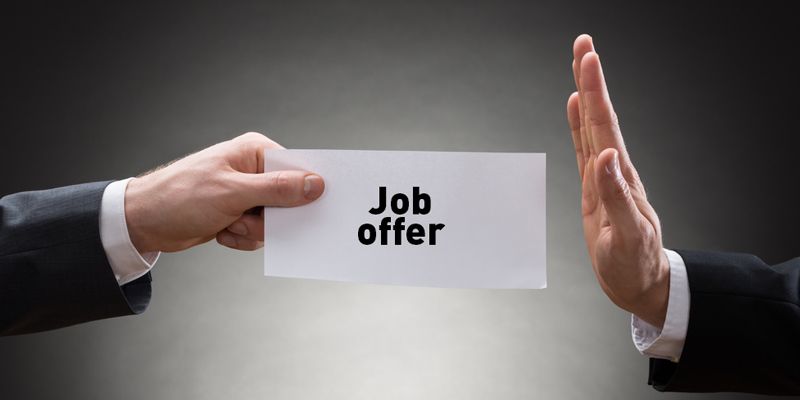73% of professionals have declined a job offer due to these red flags

Johannesburg, South Africa,15 October 2025 – A new study by global talent solutions partner Robert Walters reveals that nearly three-quarters of professionals have declined a job offer after a poor interview experience. Despite this, three in five hiring managers report that they have never received formal training on how to conduct interviews, highlighting a disconnect between company practices and job seekers’ expectations.
When asked what the biggest interview red flags were, professionals said:
- Disorganised scheduling or processes (38%) – when interview timings or next steps aren’t clear, professionals can feel uncertain about how the process is being managed.
- Poor explanation of the role (28%) – if responsibilities and expectations aren’t fully outlined, professionals may find it difficult to understand where they would add value.
- Negative impressions of the company’s culture or values (20%) – inconsistent messaging or a lack of clarity about workplace culture can leave professionals unsure about long-term fit.
These issues, often small in isolation, can combine to damage trust and business reputation, and make job offers less attractive.
“Interviews are often the first real interaction a professional has with a company. Candidates pick up on subtle cues, and small missteps can make them question whether a business is the right fit,” says Gerrit Bouckaert, CEO – Recruitment at Robert Walters. “Untrained hiring managers can inadvertently reject top talent on behalf of the company, which can affect time-to-hire, recruitment costs, and the ability to secure the people needed to drive business growth. Just as importantly, it can leave a lasting mark on how the business is perceived as an employer.”
Even small lapses can have a big impact. Almost half of professionals (47%) said a late interviewer would change their view of the company, while one in four said they decide within the first few minutes whether they would like to work at the business.
Streamlining the process
Interview structure also matters. The survey found that almost three-quarters (73%) of professionals believe two rounds or fewer are sufficient for mid-level roles, while only 36% believe three or more are necessary.
“Many of these missteps are preventable”, adds Bouckaert. “A clear and concise interview structure signals professionalism and respect for the candidate’s time. It also increases the likelihood of securing strong professionals before they accept offers elsewhere.”
How to avoid common interview red flags
While the statistics are striking, there are simple solutions for businesses seeking to improve hiring outcomes. According to the Robert Walters Complete Interview Guide , hiring managers should:
- Review the role and candidate profile in advance so they are fully briefed.
- Arrive on time and begin promptly to make a positive impression.
- Follow a clear structure with set timings and topics to keep discussions focused.
- Ask relevant, consistent, and fair questions to assess skills and cultural fit.
- Adapt the process for different formats – virtual, in-person or panel – without losing structure.
- Provide timely feedback and follow up quickly to maintain engagement and momentum.
Bouckaert concludes, “Companies have a real opportunity to turn interviews into a competitive advantage. By equipping managers with the right preparation and training, organisations can engage candidates more effectively, increase acceptance rates, and reduce the risk of losing talent to competitors. Even small improvements, like arriving on time, providing clear information, and structuring the process well, can have a measurable impact.”

SUBSCRIBE TO OUR NEWSLETTER












